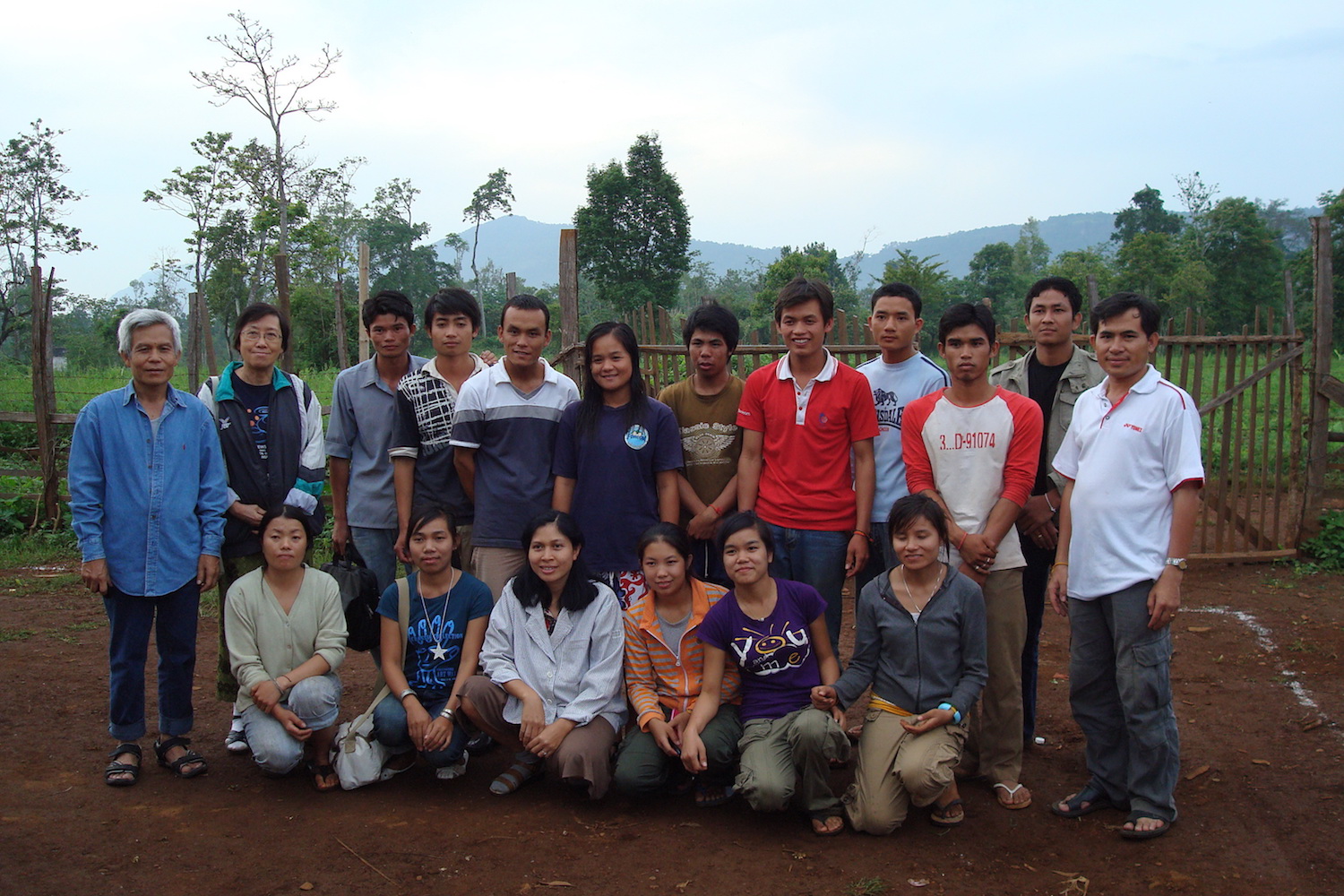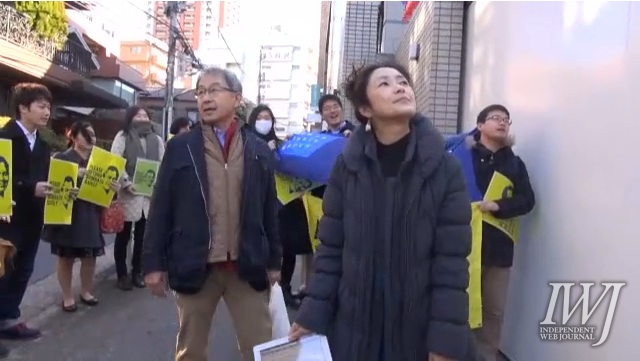Press release from Human Rights Watch
(Française)
(Việt)
 (Bangkok, February 19, 2013) – Lao authorities have failed to provide information on leading social activist Sombath Somphone since his apparent enforced disappearance in December 2012, Human Rights Watch said today.
(Bangkok, February 19, 2013) – Lao authorities have failed to provide information on leading social activist Sombath Somphone since his apparent enforced disappearance in December 2012, Human Rights Watch said today.
The Association of Southeast Asian Nations (ASEAN) and its human rights commission should intervene in the case with the Lao authorities, who have denied detaining Sombath, and who have not reported his fate or location, Human Rights Watch said.
“The Lao government’s long silence about Sombath Somphone’s whereabouts increase our concerns for his safety,” said Brad Adams, Asia director at Human Rights Watch. “The authorities seem more focused on deflecting international criticism than genuinely investigating Sombath’s disappearance.”
There is strong evidence that Sombath, a prominent 60-year-old social activist who received the Ramon Magsaysay Award for Community Leadership in 2005, was forcibly disappeared by Laotian authorities in Vientiane, the capital, more than two months ago, Human Rights Watch said. He was last seen by his wife, Ng Shui Meng, on December 15 as they were driving separately back from his office to their home for dinner. Shiu Meng lost sight of Sombath’s jeep at around 6 p.m. near the police post on Thadeua Road (KM 3) in Vientiane, and he never arrived home.
Security camera footage from the Municipality Police Station, obtained by Shui Meng, shows that Sombath’s jeep was stopped by police at the Thadeua police post at 6:03 p.m. Sombath was then taken into the police post. Later, a motorcyclist stopped at the police post and drove off with Sombath’s jeep, leaving his own motorcycle by the roadside. Another truck with flashing lights then came and stopped at the police post. Two people got out of the truck, took Sombath into the vehicle, and then drove off.
On December 19, the Lao Ministry of Foreign Affairs issued a statement confirming the incidents as recorded on the security camera, but claimed he was kidnapped for personal or business reasons. Lao authorities have told Sombath’s family, foreign diplomats, United Nations agencies, and civil society groups across Asia that they have been investigating the case. But to date, they have provided no information on Sombath’s whereabouts, his fate, or who was responsible for his enforced disappearance, Human Rights Watch said.
“Lao authorities have not answered the simplest questions about this case, such as why, if Sombath was kidnapped, did the police at the scene do nothing to protect him,” Adams said. “The absence of any real investigation points to the government’s responsibility.”
Enforced disappearances are defined under international law as the arrest or detention of a person by state officials or their agents followed by a refusal to acknowledge the deprivation of liberty, or to reveal the fate or whereabouts of the person.
Enforced disappearances violate or threaten to violate a range of fundamental human rights protected under the International Covenant on Civil and Political Rights, to which Laos is a party, including prohibitions against arbitrary arrest and detention, torture and other cruel, inhuman or degrading treatment, and extrajudicial execution.
Laos is one of the first countries in Southeast Asia to sign the International Convention for the Protection of All Persons from Enforced Disappearance in September 2008. As a signatory, Laos is obligated under international law to refrain from acts that would defeat the object and purpose of the treaty.
Members of ASEAN, to which Laos belongs, should publicly raise their concerns about Sombath’s enforced disappearance, Human Rights Watch said. On February 19, Human Rights Watch sent a letter to the commissioners of the ASEAN Inter-governmental Commission on Human Rights (AICHR), calling for them to investigate the case. AICHR’s Terms of Reference provides the commission the right “to obtain information from ASEAN Member States on the promotion and protection of human rights.”
“Sombath’s disappearance is a major test for ASEAN and its human rights commission,” Adams said. “ASEAN’s silence in Sombath’s case reflects a deeply rooted lack of credibility in protecting the basic rights of people in Southeast Asia.”
The latest letter from Human Rights Watch to the Lao Government can be downloaded here.
For more Human Rights Watch reporting on Laos, please visit: http://www.hrw.org/en/asia/laos





